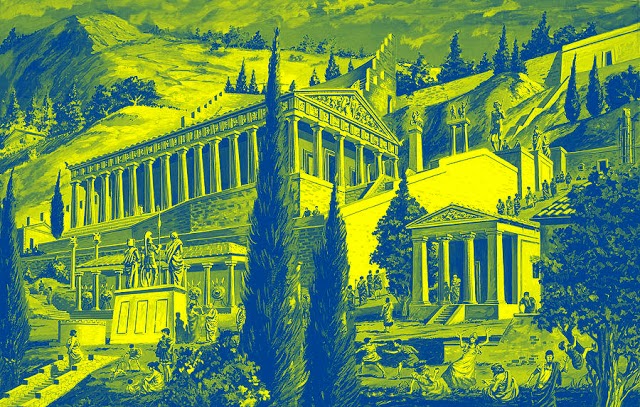In one of his books, K. Diakogiannis refers to the published words by a Swiss lady. She provides her own answer as to why all behave with a "shabby" way towards the Greek people! She explains why she and other Europeans hate the Greeks.
However, among other things, she confides that although there is a feeling of hatred from her side, at the same time she admires and respects the Greek spirit and the ancient Greeks.
















